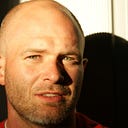Member-only story
Didn’t Get An MFA In Creative Writing?
There are two ways to look at the publishing path.
First off, I’ll just admit that I didn’t earn an MFA. I was accepted by the University of Montana’s for its MFA Fiction program, and was excited about attending, but realized that I couldn’t afford the tuition (as low as Montana’s tuition is). At the last minute, there was no way to swing it financially, and I had to give up my spot. So I have never attended a graduate workshop, I haven’t taken all of the courses on arc and structure, I don’t have a fiction alma mater, and no colleague of mine is a “reader friend from the MFA years.”
There are other published authors like me, authors who also earned no graduate degree in writing, and that feels comforting, but I also realize that there are probably vast, gaping holes in my knowledge, and that it’s probably true that I don’t even know what I don’t know.
That said, I wear my non-MFA badge with pride. It took hard work (writing every morning in the dark, reading and analyzing countless great books, note-taking through articles on craft, studying the work of editors like Betsy Lerner and Sol Stein, etc.). I wrote and wrote and wrote, and threw out drafts — whole drafts — because they were terrible. And I learned slowly.
